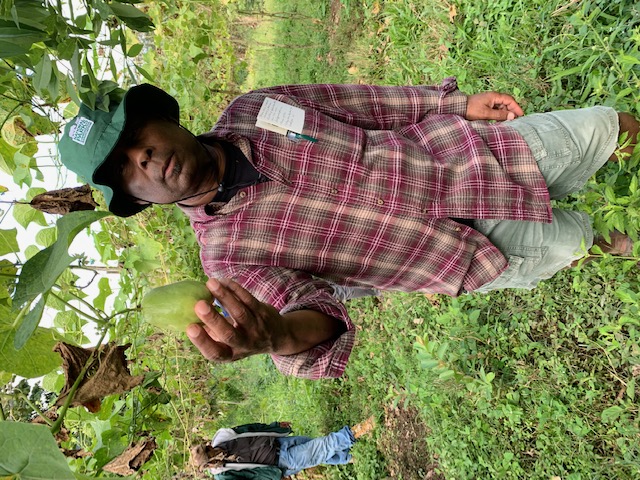Sustainable Agriculture and Environment in Nicaragua a Winter Study Abroad
According to Assistant Professor Howard D. Leathers of the University of Maryland, College of Agriculture and Natural Resources in his book entitled, The World Food Problem, Toward Understanding and Ending Undernutrition in the Developing World, (Leathers, 2017, p.1), “The dream of eliminating hunger in the world may just be a dream that comes true in the lifetime of some readers of this book.” During my current studies of Sustainable Agriculture and Resources Management at the University of Maryland, Institute of Applied Agriculture in College Park, I came across a program of study abroad in Nicaragua that boldly claimed this country in Central America has reached a 90% food self-sufficiency. That statement caught my attention, and as a result, I registered for this class. I was glad to be one of the students traveling to Nicaragua with a specific aim in mind, to find out how the Nicaraguans reached this elusive target, which is particularly difficult for most other developing countries.
Upon arrival in Nicaragua, I was met by Erika Takeo, Coordinator for ATC (Associación de Trabajores del Campo = Association of Rural Workers). During the ride from the airport to Escuala Francisco Morazάn on the outskirt of Managua, Erika confirmed that Nicaragua is at the level of 90% food self-sufficiency. Later on, when I met with Ari Gutman, one of the interpreters for this program, he mentioned the 90% level has been exceeded. That was music to my ears because the country of my birth Haiti is underperforming across the board, particularly in agricultural productivity. During the first presentation on 4 January 2023, Edgardo Garcia, founder and General Secretary of ATC revealed to us that the 90% level of food self-sufficiency and food security is a fact of life in Nicaragua.
ATC was created in 1975 as a grassroots movement that promoted land reform, workers’ rights, support for unions, and basic services such as electrification, drinking water, and irrigation. All these activities were undertaken as a means to ensure and maintain food sovereignty through domestic production, thus mitigating poverty as well as environmental protection in Nicaragua. Other credible professors and speakers confirmed Nicaragua can feed itself. Based on visual observations be it in Managua, Estelí, Estelí la Montañita, Matagalpa, San Ramon, etc., the Nicaraguan people look healthy, not suffering from malnutrition or undernourishment. Additionally, while driving across the countryside and visiting various farms, you can see the landscape green with agricultural productivity. They use a system called “Agroecology”. According to Wikipedia, this practice varies between regions and has three main approaches or levels: 1) plot scale, 2) farm scale, and 3) food system scale. Agroecology serves as a tool for providing both ecological, economic, and social benefits to the communities that practice it, as well as maintaining high biodiversity and providing refuges for flora and fauna.
On a different level, I enjoyed the opportunity to meet lots of friendly and good people, some of them are considered new friends. How would that benefit Haiti? One of my activities to assist Haiti in a tangible and meaningful way is connecting American universities with Haitian universities by signing a Memorandum of Understanding (MOU) to work collaboratively, as well as connecting cities under the Sister City International program. I have identified the following two Nicaraguan universities: 1) National Agrarian University and 2) Latin American Institute of Agroecology that could enter into partnerships with corresponding Haitian universities and two cities Matagalpa and San Ramon. Just in passing, there is already an existing, but unmentioned partnership between Haiti and all Latin American countries through General and Liberator Simon Bolivar. When he needed help twice, Haiti through General and President Alexandre Pétion gave him everything possible, be it financial support, safe harbors, training, and troops to accomplish his mission. As mentioned in the introduction, we can eliminate hunger in the world, one country at a time by following Nicaragua’s example. At this moment, can we find a way to assist Haiti with her chronic problem of food insecurity and other environmental degradation?
